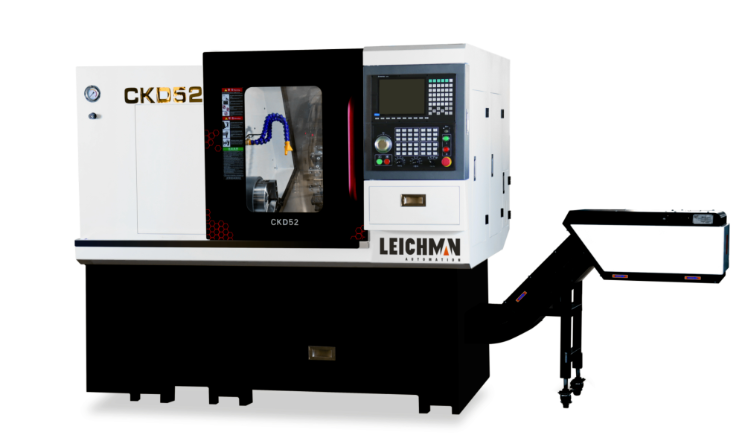Choosing the Right CNC Lathe Machine for Your Manufacturing Needs
In the ever-evolving landscape of manufacturing, CNC machines have revolutionized the industry. These automated machines provide precision, efficiency, and consistency, making them indispensable for any modern manufacturing operation. Among the various CNC machines available, the CNC lathe stands out as a versatile workhorse, enabling the production of intricate components and parts with remarkable accuracy.

At Leichman, we understand the significance of selecting the right CNC lathe machine for your manufacturing needs. In this comprehensive guide, we will delve into the key factors you must consider when choosing a CNC lathe to ensure you make an informed decision that aligns with your specific requirements.
1. Understanding Your Manufacturing Needs
Before diving into the technical specifications of CNC lathe machines, it is essential to gain a clear understanding of your manufacturing needs. Ask yourself the following questions:
What types of components or parts do you need to produce?
What materials will you be working with (e.g., metals, plastics, wood)?
What is the required precision and tolerance level for your parts?
What is the anticipated production volume?
By answering these questions, you can lay the foundation for a successful CNC lathe selection process.
2. Types of CNC Lathe Machines
CNC lathes come in various configurations, each designed for specific applications. Here are the most common types:
a. 2-Axis CNC Lathe:
A 2-axis CNC lathe allows for turning operations on the X and Z-axes, making it ideal for simple cylindrical parts with straightforward profiles.
b. Multi-Axis CNC Lathe:
Multi-axis CNC lathes offer enhanced versatility, with additional axes such as the Y-axis or live tooling capabilities. These machines can produce complex geometries and reduce the need for secondary operations.
c. Swiss-Type CNC Lathe:
Swiss-type CNC lathes excel at producing long and slender parts with high precision. They are well-suited for industries like medical and electronics.
d. Vertical CNC Lathe:
Vertical CNC lathes are suitable for large, heavy workpieces and are often used in industries like aerospace and automotive.
e. Horizontal CNC Lathe:
Horizontal CNC lathes are known for their stability and are excellent for large-scale, heavy-duty turning applications.
3. Machine Construction and Bed Length
The construction and bed length of the CNC lathe play a vital role in determining the machine's stability and the size of parts it can handle. For larger and heavier parts, a machine with a sturdy bed and ample length is crucial to prevent vibrations and ensure accuracy.
4. Spindle Speed and Motor Power
The spindle speed and motor power of a CNC lathe impact the cutting performance and material compatibility. Higher spindle speeds allow for faster cutting, while a powerful motor ensures stable performance during heavy-duty operations.
5. Control System and Software
The CNC control system and software are the brains behind the machine's operations. A user-friendly and intuitive control interface can significantly enhance productivity and reduce setup time.
6. Tooling and Tool Changers
Consider the type of tooling the CNC lathe can accommodate and how efficiently it can change tools during operations. Quick and automated tool changers can save valuable production time.
7. Cooling and Chip Management
Efficient cooling and chip management are crucial for maintaining cutting tool life and ensuring a clean work environment. Look for CNC lathes with effective cooling systems and chip conveyors.
8. Accuracy and Repeatability
Precision is paramount in manufacturing. Pay close attention to the CNC lathe's accuracy and repeatability specifications to ensure consistent and high-quality results.
9. After-Sales Support and Service
A reliable CNC machine supplier should provide excellent after-sales support, including technical assistance, maintenance services, and readily available spare parts.
Conclusion
Selecting the right CNC lathe machine for your manufacturing needs is a critical decision that can significantly impact your business's success. By understanding your requirements, exploring different types of CNC lathes, and evaluating crucial factors like machine construction, spindle speed, control system, and after-sales support, you can make an informed choice.
评论
发表评论